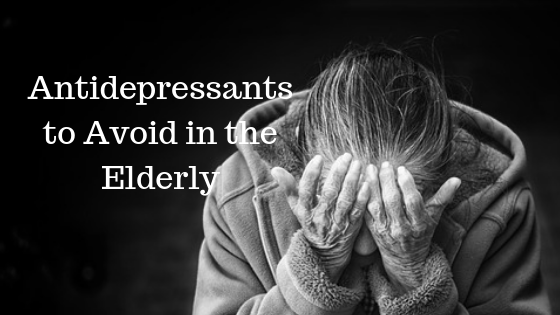Depression is a common problem in the elderly. As a pharmacist who works in long term care, assisted livings, and geriatrics, I am well aware of this. As someone who focuses their expertise on the use of medications, we must remember that there can be equally bad adverse outcomes from the medications we use to treat depression. There is always a time a place for every medication, but in general, here’s a few antidepressants to avoid in the elderly if possible.
- Tricyclic antidepressants (TCA’s). Examples: Nortriptyline, amitriptyline. These drugs are highly anticholinergic and can exacerbate multiple different disease states. TCA’s can exacerbate constipation, BPH, and dementia. They can also contribute to other side effects like dry mouth and dry eyes. All of these issues can be significant problems in our elderly patients prior to the addition of these medications. In rare cases, these can exacerbate cardiac conditions like QTc prolongation. In general, we tend to avoid using these antidepressants.
- Paroxetine. SSRI’s are the class of choice for initial antidepressant therapy. Paroxetine is an SSRI. However, it has some anticholinergic effects that make it not so desirable for use in the elderly.
- Fluvoxamine. Another SSRI that makes the naughty list in the elderly is fluvoxamine. This medication is notorious for drug interactions and with our geriatric, polypharmacy patients, this can be a recipe for disaster. The frequency of significant drug interactions with fluvoxamine gives us good reason to avoid this medication.
- MAOI’s. These drugs are seldom used in any patients, much less geriatric patients. They have significant drug interactions and also have dietary restrictions. If you ever have a patient on an MAOI like tranylcypromine, you have to monitor closely for drug interactions.
There you have it. A short list of antidepressants to avoid in the elderly. One of my most popular posts to date has been with regards to gradual dose reduction for psychotropics. Here’s the link to that article.
